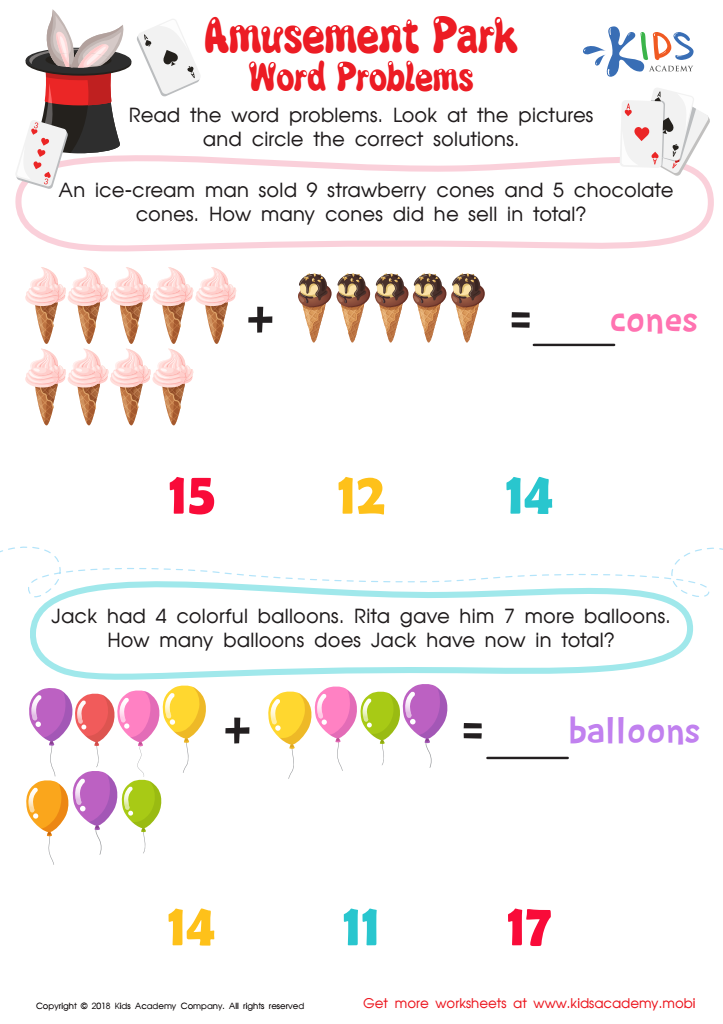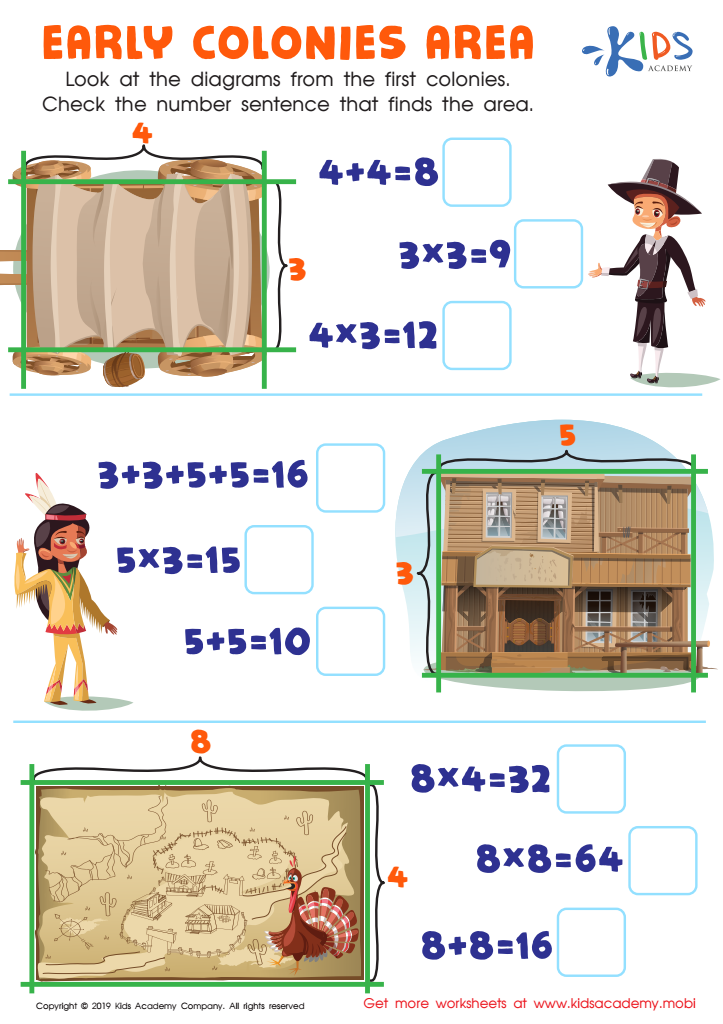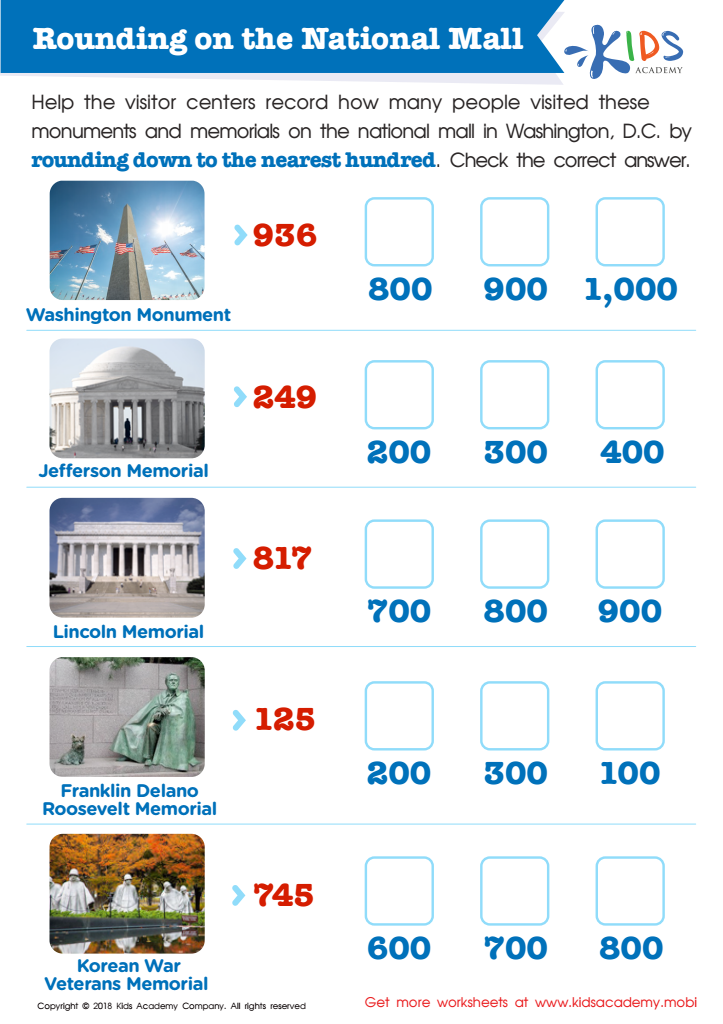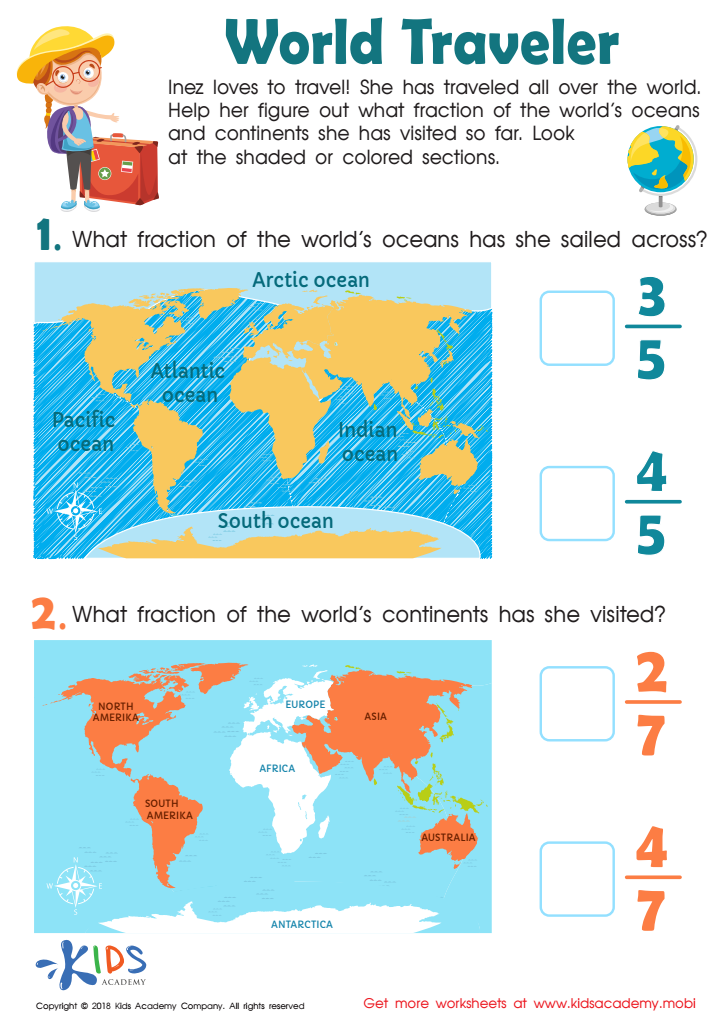Map reading skills Math Worksheets for Ages 5-9
5 filtered results
-
From - To
Unleash the explorer in every child with our "Map Reading Skills Math Worksheets for Ages 5-9"! These engaging, fun-filled worksheets are designed to ignite young minds, combining critical math skills with the excitement of map reading. Tailored to boost spatial awareness, problem-solving, and numerical abilities, our printable resources make learning an adventure. Perfect for classrooms or home study, they offer various activities, from plotting coordinates to following simple maps, ensuring a versatile learning experience. Start their journey to knowledge today by enhancing their math capabilities with these interactive and educational worksheets. Explore, learn, and grow!


Amusement Park Word Problems Worksheet


Early Colonies Area Worksheet


Rounding on the National Mall Worksheet


World Traveler Worksheet
Map reading and understanding spatial concepts are crucial skills for young children, as they offer various cognitive and educational benefits.
First, maps enhance spatial awareness. Recognizing landmarks, distances, and directions helps children grasp their immediate environment and the world beyond. This lays the foundation for navigating spaces effectively and safely.
Second, maps facilitate abstract thinking. Understanding symbols and their meanings boosts cognitive skills related to abstract reasoning. It teaches children to translate two-dimensional representations into real-world understanding, a critical skill applicable across many fields.
Third, integrating maps with mathematics strengthens numeracy. When kids measure distances using scales, they practice basic arithmetic such as addition, subtraction, and understanding proportions. This makes math tangible and relatable, showing its practical use in everyday life.
Fourth, map reading promotes problem-solving and critical thinking. Figuring out routes, organizing trips, or even playing treasure hunts require children to use logic and planning, sharpening their problem-solving skills.
Lastly, these skills support interdisciplinary learning. Geography, history, and even storytelling can be explored through maps, making learning more engaging and comprehensive.
Altogether, map reading for ages 5-9 is more than just an academic exercise; it's a valuable tool that enhances spatial reasoning, problem-solving, and mathematical skills, leading to well-rounded cognitive development.
 Assign to My Students
Assign to My Students






















